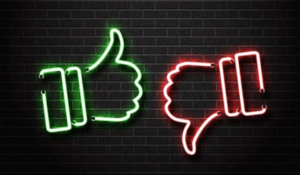An effective reward system for employees is essential for creating a positive and motivated work environment. It not only helps in retaining top talent but also improves overall job satisfaction and productivity. In this article, we will explore what an employee reward system is, how it empowers employees, strategies for implementing an effective reward system, benefits of such a system, types of rewards that motivate employees, examples of effective reward systems, the role of management, and why HubEngage is the most effective reward system for employees.
What is an Employee Reward System?
An employee reward system refers to a structured approach that organizations use to recognize and reward their employees for their hard work and achievements. It goes beyond monetary compensation and focuses on acknowledging and appreciating employees’ efforts, contributions, and accomplishments. This system plays a vital role in enhancing employee engagement, motivation, and overall job satisfaction.
- Implementing an effective employee reward system requires careful planning and consideration.
- Organizations must design a program that aligns with their values, goals, and culture.
- The system should be fair, transparent, and inclusive.
- It must ensure all employees have equal opportunities to be rewarded for their performance.
Performance-based Monetary Incentives
One common element of a good employee reward system is the use of performance-based incentives. In the quest to recognize and reward outstanding achievements, organizations are increasingly turning to tailored financial incentives directly linked to individual or team performance. This approach not only cultivates a culture of excellence but also aligns the success of employees with that of the company. By linking rewards directly to performance, organizations can motivate employees to strive for excellence and keep growing.
- Salary and Wages: Providing competitive base salaries ensures that employees feel adequately compensated for their skills and contributions.
- Bonuses: Performance-based bonuses tied to individual or team achievements can motivate employees to exceed expectations.
- Profit Sharing: Sharing a percentage of company profits with employees offers a direct financial reward linked to the organization’s success.
- Stock Options: Granting employees the option to purchase company stocks at a discounted rate can align their interests with the company’s long-term performance.
- Commission: For sales or performance-driven roles, offering commission based on sales or specific targets achieved can be a powerful motivator.
- Signing Bonuses: Attract top talent by offering a one-time bonus as part of the employment offer, often used in competitive job markets.
- Retention Bonuses: Encourage employee loyalty by providing bonuses for staying with the company for a predefined period.
- Annual Raises: Implementing regular salary increases based on performance, inflation, or cost of living adjustments helps employees see continued financial growth.
- Spot Awards: Instant cash rewards for outstanding performance or going above and beyond the call of duty can provide immediate formal recognition.
- Referral Bonuses: Incentivize employees to refer qualified candidates by offering cash bonuses for successful hires.
Non-Monetary Incentives
Employee reward systems are not solely focused on financial rewards. While financial rewards are undeniably important, the intangible benefits that fall under the umbrella of non-monetary incentives can be equally, if not more, influential in enhancing employee engagement. From professional development opportunities to recognition programs, these non-financial motivators contribute to a holistic approach in cultivating a motivated, fulfilled, and loyal workforce. Non-monetary incentives go beyond the paycheck, shaping a workplace where employees thrive. These non-financial rewards can include:
Recognition and Appreciation:
- Employee of the Month recognition
- Public acknowledgment in team meetings
- Thank-you notes or emails for exceptional performance
Flexible Work Arrangements:
- Remote work options
- Flexible hours or compressed workweeks
Professional Development Opportunities:
- Training programs
- Skill development workshops
- Conferences and seminars attendance
Career Advancement Opportunities:
- Mentorship programs
- Cross-training opportunities
- Promotions based on performance
Work-Life Balance Initiatives:
- Wellness programs
- On-site fitness facilities or classes
- Family-friendly policies
Casual Dress Code or Dress Down Days:
- Casual Fridays or designated dress-down days
Special Assignments or Projects:
- Opportunities to lead a project or task force
- Involvement in decision-making processes
Team Building Activities:
- Team outings or retreats
- Team-building exercises and games
Employee Empowerment:
- Encouraging employees to contribute ideas
- Involvement in decision-making processes
Personalized Gifts or Awards:
- Customized gifts based on individual preferences
- Trophies or plaques for significant achievements
Flexible Vacation Policies:
- Additional vacation days or extended weekends
Social Events and Celebrations:
- Birthday celebrations
- Milestone anniversaries recognition
Casual Work Environment:
- Comfortable and creative office spaces
- Casual and friendly atmosphere
Wellness Initiatives:
- On-site massages or relaxation activities
- Health and wellness challenges
Employee Assistance Programs:
- Counseling services
- Support for work-life challenges
Group Performance Incentives
Employee reward systems can extend beyond individual recognition and incorporate team-based rewards. By acknowledging and rewarding collaborative efforts, organizations can promote teamwork, cooperation, and a sense of camaraderie among employees. This can be achieved through team-building activities, group celebrations, or even team-based performance bonuses.
- Team Bonuses: Reward the entire team with a bonus based on collective performance achievements.
- Recognition and Awards: Acknowledge outstanding team efforts through awards and certificates.
- Flexible Work Arrangements: Grant flexibility in work hours or remote and hybrid timing options.
- Professional Development Opportunities: Invest in team growth by offering courses, workshops, or conferences to enhance skills.
- Team Retreats or Outings: Plan team-building retreats or outings to strengthen bonds and celebrate achievements.
- Special Projects: Offer exciting and challenging projects as a reward for exceptional team performance.
- Employee of the Month/Quarter: Highlight one or more standout team members regularly, boosting morale and fostering healthy competition.
- Health and Wellness Programs: Introduce wellness initiatives like gym memberships, fitness classes, or health consultations.
- Profit Sharing: Share a percentage of company profits with the team as a performance-based incentive.
- Gamification and Challenges: Implement gamified challenges with rewards for achieving specific team milestones.
- Career Advancement Opportunities: Provide opportunities for career growth and promotions based on team accomplishments.
- Personalized Gifts or Prizes: Offer customized gifts or prizes to team members based on their preferences or interests.
- Peer Recognition Programs: Establish a system where team members can recognize and reward each other’s contributions.
- Extended Time Off: Grant additional days off or extended weekends as a reward for exceeding performance targets.
- Profit-Linked Performance Bonuses: Tie bonuses directly to the team’s impact on the company’s financial success.
Furthermore, an effective employee reward system should be continuously evaluated and adjusted to meet the changing needs and preferences of employees. Regular feedback and surveys can help organizations gather insights into what types of rewards are most valued by their workforce. This feedback-driven approach ensures that the reward system remains relevant and impactful.
How do Reward Systems Empower Employees?
Employee reward systems empower employees by recognizing and reinforcing their positive behaviors and achievements. When employees are rewarded for their hard work and contributions, it creates a sense of appreciation and validation. This, in turn, boosts employee morale, motivation, and job satisfaction. It also stimulates healthy competition among employees, as they strive to perform better and earn rewards.
Strategies for Implementing an Effective Reward System
Implementing an effective reward system requires careful planning and consideration. Here are some strategies to ensure its success:
- Align rewards with organizational goals: The rewards offered should be directly linked to the organization’s objectives and values. This helps in reinforcing desired behaviors and aligning employees with the company’s mission.
- Establish clear criteria: Clearly define the criteria for earning rewards. This ensures transparency and fairness in the reward allocation process. Employees should know what is expected of them to qualify for rewards.
- Provide timely recognition: Timely recognition is crucial to keep employees motivated. Rewarding employees promptly after their achievements or notable contributions reinforces their positive behavior and encourages them to continue excelling.
- Offer a variety of rewards: Different employees may be motivated by different incentives. Hence, it is important to offer a variety of rewards that cater to the diverse needs and preferences of employees. This can include monetary rewards, non-monetary incentives, career development opportunities, and more.
Benefits of an Effective Reward System
- Increased employee motivation and job satisfaction
- Improved employee retention and loyalty
- Enhanced productivity and performance
- Boosted employee engagement and morale
- Fostered a positive work culture
Types of Rewards that Motivate Employees
- Monetary rewards: These include salary increases, bonuses, profit sharing, and stock options.
- Non-monetary rewards: These can be in the form of recognition, appreciation events, flexible work arrangements, extra time off, or career development opportunities.
- Personalized rewards: Tailored rewards that cater to individual interests and preferences, such as gift cards, personalized experiences, or unique incentives.
Examples of Effective Reward System for Employees
- Company-wide recognition programs: These programs allow employees to appreciate and recognize their peers for their exceptional work. This fosters a culture of appreciation and teamwork.
- Employee of the Month: Recognizing an outstanding employee each month not only boosts morale but also sets an example for others and inspires them to excel.
- Performance-based incentives: Offering bonuses or commission based on individual or team performance can incentivize employees to strive for higher productivity and quality of work.
The Role of Management in an Effective Reward System
- Communicate goals and expectations clearly to employees
- Regularly provide feedback and acknowledge employees’ efforts
- Ensure fairness and transparency in reward allocation
- Encourage collaboration and team-based rewards
Role of a Recognition Platform in Creating an Effective Employee Reward System
A recognition platform like HubEngage offers a comprehensive solution for creating and managing an effective reward system. With HubEngage, organizations can leverage multiple communication channels such as mobile apps, web, email, SMS, and digital signage to reach and engage all employees effectively. This ensures that no employee is left out of the communication loop, increasing participation and engagement in the reward system.
What makes HubEngage a Great Employee Reward System?
- Easy setup and customization options
- Seamless integration with existing systems and HR platforms
- Multiple communication channels for maximum reach and engagement
- Real-time tracking and reporting of reward program performance
- Personalized and tailored rewards based on individual preferences
By choosing HubEngage, organizations can enhance employee engagement, motivation, and overall job satisfaction, ultimately leading to improved business outcomes.
An effective reward system is a critical component of any organization’s success. It empowers employees, motivates them to perform at their best, and fosters a positive work culture. When implemented correctly, a reward system can significantly impact employee engagement, job satisfaction, and overall productivity. HubEngage, with its comprehensive features and extensive communication channels, stands as the most effective reward system for employees, offering organizations the tools they need to create a successful and engaging reward program.
Ready to Elevate your Organization’s Employee Engagement with a Reward System that Truly Stands Out?
Discover the HubEngage Difference
Experience the power of HubEngage, the award-winning platform that brings together internal communications, social engagement, and personalized recognition into one seamless experience. With our multi-channel capabilities and custom branded apps, HubEngage is designed to fit your unique brand identity and meet the diverse needs of your workforce. Don’t miss the opportunity to transform your employee reward system.
See a demo today and start your journey towards a more motivated, satisfied, and productive team.













